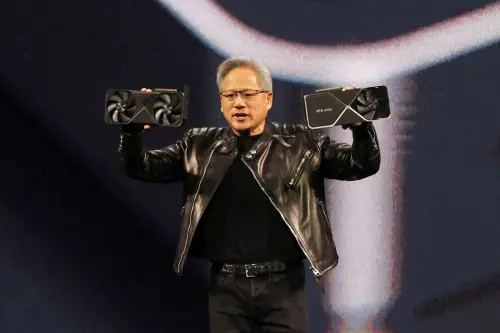At the company's annual software developer conference in San Jose, California, Nvidia CEO Jensen Huang discussed the shift in the artificial intelligence industry towards obtaining detailed answers from AI models rather than just training them. Huang defended Nvidia's position in selling AI chips despite recent investor concerns raised by China's DeepSeek success with a competitive chatbot using fewer chips.
However, Huang's presentation did not reassure investors, resulting in a 3.2% drop in Nvidia's shares. He emphasized the increasing demand for computation due to the rise of autonomous AI agents that require minimal human intervention. Nvidia's success largely relies on its software tools and data center chips, contributing significantly to its $130.5 billion in sales last year.
To address the evolving AI market, Nvidia introduced new chips such as the upcoming GPU chip Blackwell Ultra, designed to support larger AI models. Huang highlighted Nvidia's edge in providing chips that enable quick and intelligent responses to users' queries, essential for customer retention. Additionally, he unveiled future chip systems, Vera Rubin and Feynman, with enhanced capabilities set for release in the coming years.
Nvidia's Blackwell chip faced delays in entering the market, but the company reported strong orders for it recently. Huang also introduced the DGX Workstation, powered by Blackwell chips, positioning it as a high-performance alternative to some of Apple's premium Macs. Furthermore, he presented Dynamo software aimed at accelerating the reasoning process and disclosed General Motors' collaboration to develop its self-driving car fleet.
